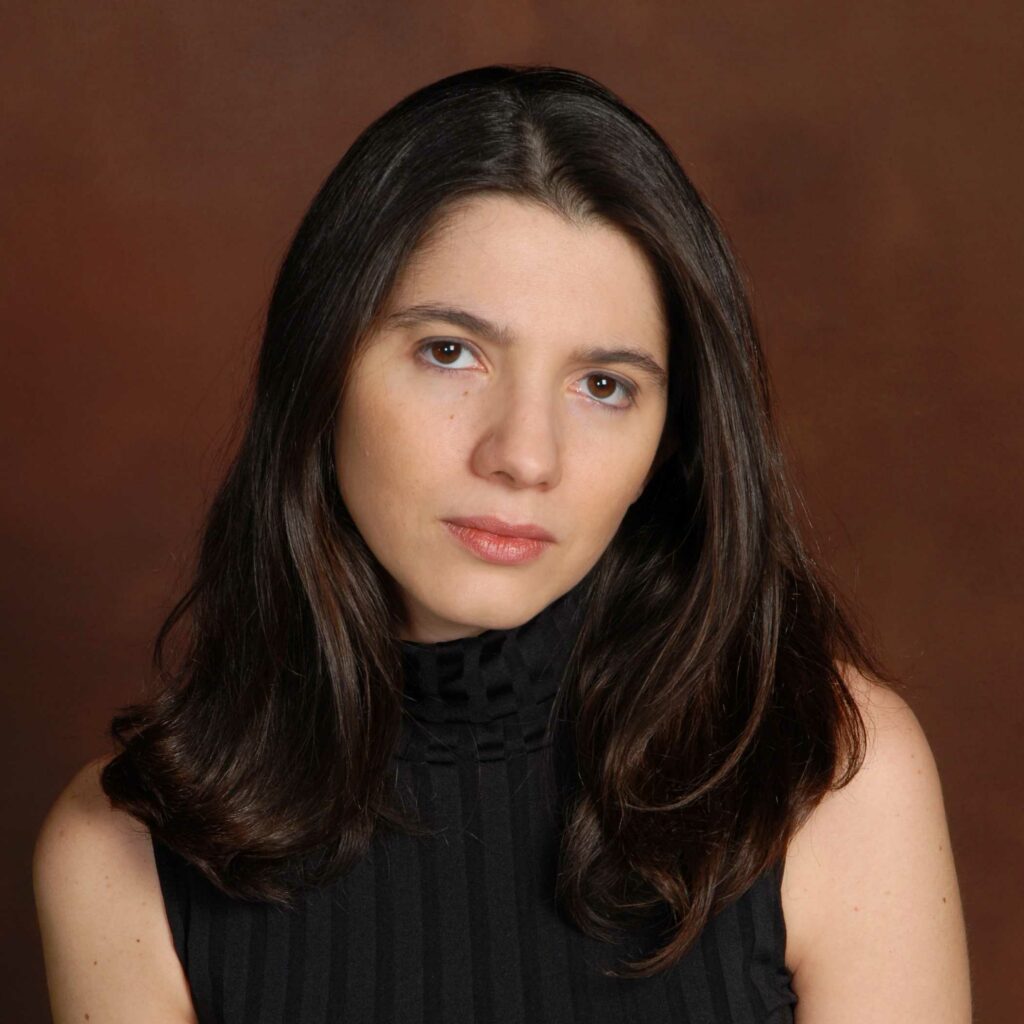
Anima Vento (2022)
from the composer
ANIMA VENTO is inspired by the idea of breath present in Primavera by Sandro Botticelli and in Primavera 2020 by Charline von Heyl.
I was particularly drawn to the image of the wind in Botticelli’s painting as a generator of life and movement. This idea manifests itself, for example, in the gesture of Zephyr who blows on Chloris, giving rise to the exhalation of roses from her mouth. It is this same breath that brings about the folds of the draperies and the one that in von Heyl’s work causes a bursting of materials, a superposition of spaces that bring the characters to life.
Like this breath, ANIMA VENTO is built from a generative sound, fragile and robust at the same time, which gradually multiplies, metamorphosizes into different timbral materials and plays on the idea of an ever-fluctuating speed to create the feeling of depth in the acoustic space.
I have always considered that the interpreter adds his own “breath” to the music, a creative breath which modulates the sound. This is why it is an honor to have ANIMA VENTO interpreted by the great talent and sensitivity of Matt Haimovitz, to whom I would like to express all my admiration.
bio
Analia Llugdar is a Canadian-Argentine composer who is currently based in France.
With the invention of timbres arousing from acoustic instruments as her inspiration, her catalogue of music includes some 60 pieces for voice, orchestra, chamber music, solo instrument, ballet, opera and mixed music. In her music, we can hear: density, energy, movement, speed, amplitude and fineness (Juana, 2012); illusion, surrealism, imagination, utopia and chimera for orchestra (Quimera, 2012); glottal stops, lacerated phonation, use of shouting as the air for a flute and electronic music (La Machi, 2010); musical theater (La Faim Artaud, 2007); construction, densification and spatialization of masses (Le Chêne et le roseau, 2005); attacks-resonance ratios (Tricycle, 2004); social critic for a soprano, pots and flutes (Sentir de cacerolas, 2002). Imagined as such, the composition of complex textures in a toned-down language provides the works with a more profound, refined and poetic esthetic.
Internationally renowned, Analia Llugdar’s creations have been played by collectives such as Klangforum Wien, Nouvel Ensemble Moderne, L’Itinéraire ensemble, Esprit orchestra, Shanghai Symphony orchestra, l’Orchestre symphonique de Laval, Tambuco percussion ensemble, Molinari string quartet, Quasar saxophone quartet, Land’s End ensemble, New music concerts, among others. In 2012, her ballet Juana was created as part of the Monaco Danse Forum and her piece Ashpa Rupaj was recorded by the Aleph ensemble at the Radio France studios in 2017.
She has received several awards for her work, including the Victor-Martyn-Lynch-Staunton prize of the Canada Council for the Arts, the “Prix Opus du compositeur de l’année 08/09 du “Conseil quebecois de la musique”, the Jules Léger Prize 2008, the Contemporary Music Québec-Flandres Prize 2007 and the First Prize at the CBC Radio Canada National Competition for Young Composers, among others.
